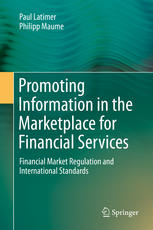

Most ebook files are in PDF format, so you can easily read them using various software such as Foxit Reader or directly on the Google Chrome browser.
Some ebook files are released by publishers in other formats such as .awz, .mobi, .epub, .fb2, etc. You may need to install specific software to read these formats on mobile/PC, such as Calibre.
Please read the tutorial at this link: https://ebookbell.com/faq
We offer FREE conversion to the popular formats you request; however, this may take some time. Therefore, right after payment, please email us, and we will try to provide the service as quickly as possible.
For some exceptional file formats or broken links (if any), please refrain from opening any disputes. Instead, email us first, and we will try to assist within a maximum of 6 hours.
EbookBell Team

4.4
102 reviewsThis book provides a unique comparative and global analysis of the regulation of disclosure in financial (securities) markets. It is written by two authors who represent both the new world (Australia) and the old world (Germany). The authors present their research in the global business context, with legal and regulatory perspectives including some references from Africa, Asia, the Middle East and South America.
After every “boom” and “bust”, legislators pass new disclosure legislation, often in a heated environment fuelled by politics and the media. Little regard is paid to existing regulation or the lessons learned from earlier regulation. The result is the continuing enactment of redundant and overlapping disclosure laws. Since financial markets are often described as markets for information, the failure to ensure disclosure is at the heart of financial services regulation. This book argues that the solution to the failure of disclosure is a brief, easily understood, principles-based, plain English safety-net amendment to statute law such as “you must keep the financial market fully informed”, a measure that would support effective mandatory continuous disclosure of information to financial markets.
This book examines the reasons for disclosure regulation, and how the efficient operation of financial markets is dependent on disclosure. It examines the adequacy of common law and civil law concerning broker/client disclosure, and concludes that industry licensing in itself fails to keep the market informed. While recognizing the failures of securities commissions to achieve good disclosure in financial markets, it confirms the effectiveness of coregulation of disclosure by a commission with the support of the financial markets (such as the stock exchange). Coregulation builds on financial market self-regulation, and is best described in the words of one-time SEC Chairman William O. Douglas, who, in the 1930s, described it as a shotgun behind the door.